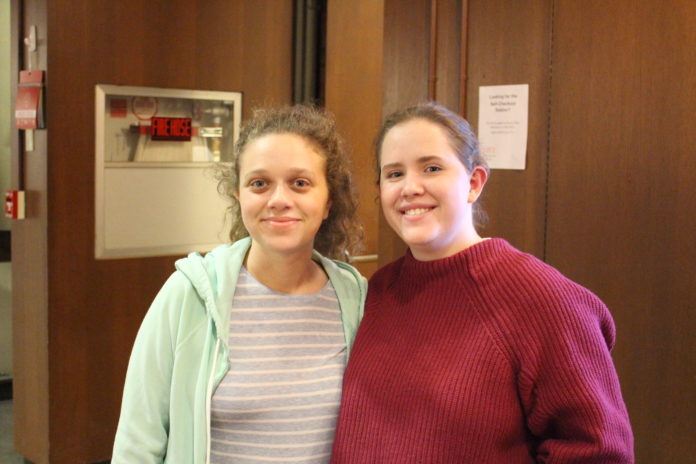
According to a Dec. 2017 study from the Global Food Initiative, 44 percent of students in the University of California system experience some form of food insecurity. The number is estimated to be less than half that at Occidental, according to an email study conducted last fall by student Victoria Funk (junior). The exact percentage is yet to be determined as the study is only in the first stages.
There are currently no major institutionalized projects to prevent food insecurity on campus, but Occidental has many initiatives focused on preventing food insecurity in the greater LA community, according to Urban & Environmental Policy Institute (UEPI) director and professor Megan Bomba.
“We work with LAUSD [Los Angeles Unified School District] on making improvements to the school meal program, we work with a number of different schools in Northeast LA on developing schools’ gardens and we also provide nutrition education to parents. I think awareness about some of the things that Oxy is already doing kind of makes us stand out,” Bomba said. “Occidental has the potential to be a voice advancing advocacy around food access and food security in the local community.”
According to sociology professor John Lang, a number of factors might contribute to the low level of food-insecure students at Occidental. Occidental requires students to live on campus and have a meal plan for three years, unlike many other California schools. Financial aid also covers up to meal plan B for students in need. According to the Occidental Campus Dining website, meal plan B is intended for students eating around three moderate meals a day. Furthermore, the average UC student is generally less affluent than Occidental’s average student. These factors can help reduce the number of people who feel uncertain about where their next meal will come from.
Lang said that these measures do not mean that Occidental is free of food insecurity.
“In a certain sense [the meal plan requirement and financial aid] provides a safety net. The question then becomes, is that enough? And does it [meal plan money] time out right for you throughout the year, rather than week by week?” Lang said.
Ann Garber, currently taking a break from school, said that she felt that she was not getting enough to eat during her time on campus. Garber wrote an op-ed for The Occidental during her first year detailing how she struggled to stretch her funds. According to Garber, she encounters many students who don’t know how to deal with their excess money and said she would like to see a food bank supplied using student’s extra meal plan money. Garber said that she would like there to be more effort focused on food inequality on campus.
“There is a lot of food inequality on this campus. Not everyone is going through the same thing. If we thought about that more, more changes would happen,” Garber said. “It’s a difficult subject to get people to open up about. I’m not ashamed about it because I’ve always been this way, so it’s really easy for me to talk about.”
Student organizations like Challah for Hunger are among the initiatives on campus providing the Los Angeles community with enough food to eat, according to Challah for Hunger e-board member Hannah Rice (sophomore). Challah for Hunger bakes food once a month on Thursdays and sells it the next day on the quad to raise funds to combat food inequality, according to Rice. Rice said that she feels that their club is largely unknown and that the club only had two volunteers last month.
“We are focused on combating food insecurity around campus and in broader Los Angeles,” Rice said. “If people are more interested in our club and what we do, we have Facebook and Instagram and they can reach out to us. All our money does go to help food insecurity. It’s not like we’re buying T-shirts or anything; it’s to help other people’s lives.”
Occidental has several other food initiatives. According to Lang, the Food Energy and Sustainability Team (FEAST) recently provided 30,000 seedlings to community gardens in the area. Lang is in the process of creating a food studies minor in which students can take a number of courses across different majors that relate to food.
Amy Muñoz, associate vice president of hospitality services, said that the school pledged to get 30 percent of their food from sustainable sources by 2020 and currently purchases 26 percent of their food from sustainable sources. Muñoz said that there are many opportunities on campus for students to get involved in food-related work.
“I think it’s great to see students participating in various aspects of food advocacy,” Muñoz said. “From something as intensive as being apart of FEAST to being a Campus Dining student sustainability intern, to something as simple as just voting with your dining dollars and choosing items that are better for the planet. You can participate on virtually any level along that spectrum.”
![]()





























